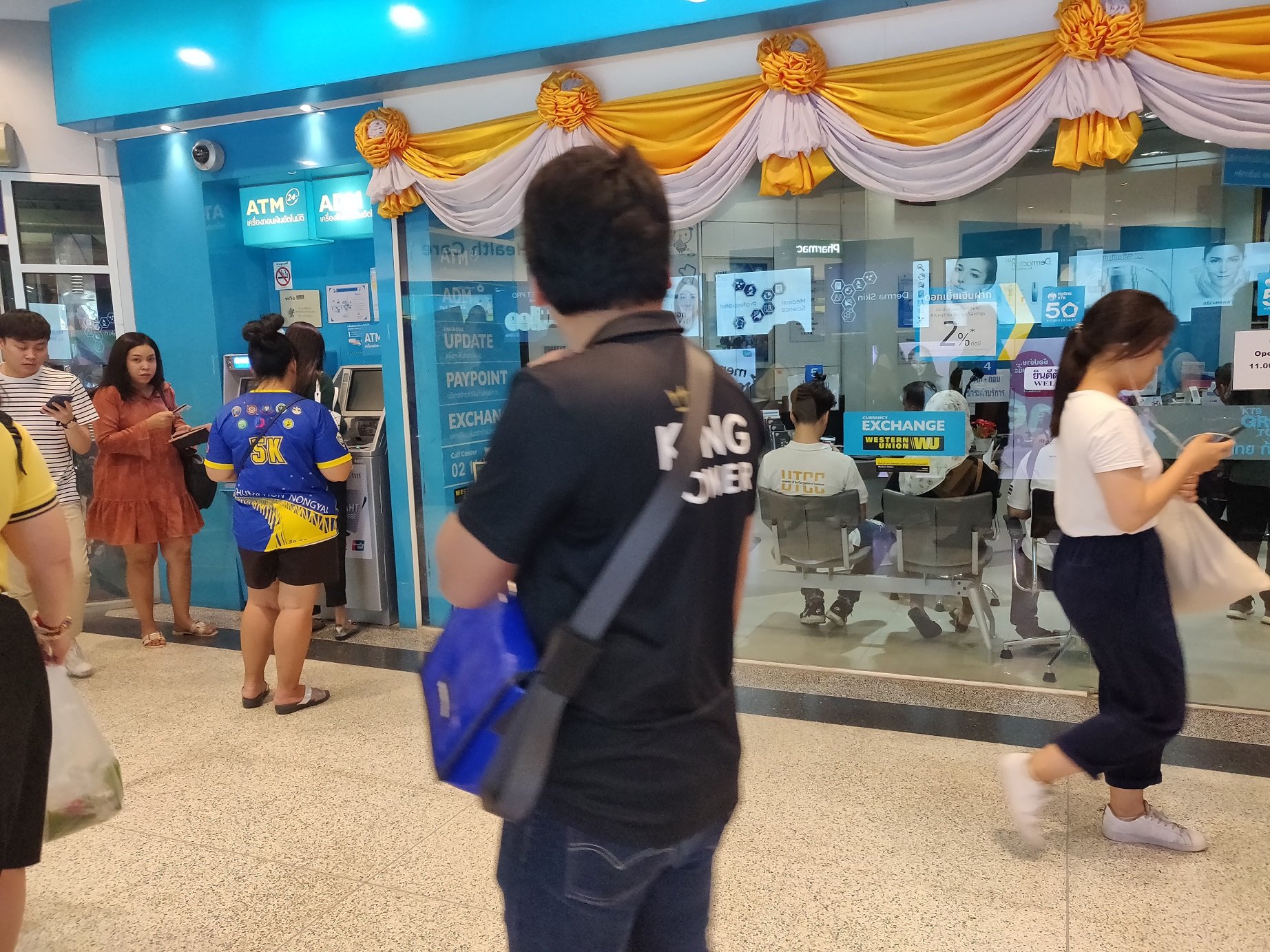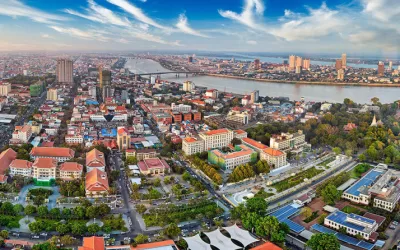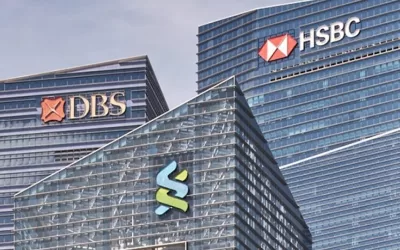A greater number of foreigners live in Thailand than anywhere else in Southeast Asia.
Naturally then, there’s a strong demand for opening bank accounts here. Yet the rules have always been unclear.
I successfully opened dozens of Thai bank accounts over the past decade. The exact circumstances were always a bit different, although I’ve gotten an account in Thailand while holding everything from a tourist visa, to a student visa, to an investment visa.
Because of this, I do feel qualified to write a guide about opening a Thai bank account from the perspective of a foreigner.
Your experience will depend on who you are. And I went through the process multiple times over the past decade as a permanent resident, tourist, university student, and employee.
The process doesn’t work the same as it did in year’s past – certainly if you’re opening a Thai bank account on a tourist visa.
Setting up a bank account in Thailand on a 30-day visa is still possible, but not anywhere near as simple as before.
You might find other guides online that specifically say “[Bank Name] will let foreigners open an account!”. We’re not doing that here for several reasons though.
First off, banks in Thailand don’t offer blanket policies on non-resident account opening.
Quite frankly, your ability depends on which branch you visit and the employee’s mood at the time. Staff at the head office will probably give you a completely different answer than a branch in Bang Na.
Secondly, staff at Thai banks are constantly changing or rotating. We could give you the name of a branch where opening an account as a foreigner was easy eight months ago. But the same friendly employee likely doesn’t work there anymore.
Don’t worry though: keep reading and you’ll learn all the information you need about opening a Thai bank account as a foreigner.

Long lines are a common sight at banks in Thailand during rush hour. Make sure you choose a convenient bank if time is important.
Best Banks in Thailand for Foreigners
Can you even open a bank account in Thailand as a foreigner? “Yes” is the short answer.
With that said, it’s a bit more complicated than that. Your available banking options in Thailand will vary based on whether you have a long-term visa or not.
Make sure you bring a passport and a minimum deposit since you will definitely need those.
Depending on which bank you’re visiting, you may also require anything from a long-term visa, to a referral letter from an existing customer, to a letter from your embassy.
What’s the best bank in Thailand? Well, there isn’t really such a thing.
We should note that, like in most of emerging Asia, your experiences might differ based on the specific bank branch you visit.
In all seriousness, it’ll depend on the branch and the staff working there more than any other factor.
Employees have a large amount of discretion regarding what paperwork they want, how easy they’ll make the process, or even if they’ll let you open a Thai bank account at all.
Therefore, if you visit a bank and things don’t work out for you, then simply try another branch. Remember to be polite with staff as well. Banking in Thailand is often frustrating, yet becoming mad will probably end up wasting your time.
Not every bank in Thailand is equal. Some are frequently crowded with customers. Others are bureaucratic as a foreigner. And a few of them lack basic customer service standards.
Largest Banks in Thailand
We’ll start off with Thailand’s biggest banks. Conveniently, they’re also the easiest ones to open an account with if you’re a foreigner.
Each of them will allow non-resident account opening. As mentioned before though, your experiences will vary depending on the exact branch.
Depending on what metric you’re using (number of staff, annual profit, AUM, etc.), the “biggest bank in Thailand” is one of three.
Bangkok Bank
Currently, Bangkok Bank (BBL) is our favorite bank in Thailand.
Not only are branches and ATMs plentiful, but you will find English-capable staff at most locations. Their online banking is better than many local banks and friendly to foreigners who don’t read Thai.
Worth noting is that Bangkok Bank has offices in New York and other major cities around the world. In fact, they easily boast the largest international presence out of all local Thai banks.
You may find Bangkok Bank very useful if you’re expecting transfers from the US, China, or elsewhere.
Siam Commercial Bank
Yet another top choice, Siam Commercial Bank (SCB) is the nation’s first and still among the biggest banks in Thailand. They directly compete with BBL and KBank for Thailand’s largest ATM network.
You shouldn’t ever have problems finding an SCB location, even far outside of major cities in Thailand.
While we generally prefer Bangkok Bank because of their vast international presence, SCB enjoy most of the same advantages. Lines are shorter when compared to other top Thai banks and customer service standards are above average.
Kasikornbank (KBank) and More
The third major Thai bank on our list, KBank is worth considering if you’re a foreigner. However, there’s one notable downside: Kasikornbank is widely known as an everyman’s company.
KBank’s Thai name is translated to “farmer’s bank”. Practically every local has an account with them and they don’t require a minimum deposit.
Thus, despite a very large presence, you’ll commonly encounter long lines at branches and ATMs at KBank.
Rounding out the top five largest banks in Thailand are Bank of Ayudhya (Krungsri) and Krung Thai (KTB).
Unfortunately, neither of their ATMs or branches are easily available compared with the three listed above. And they’re often packed with customers.
Of course, there are even smaller local banks in Thailand as well. They might have unique advantages (lower interest rates, niche services, etc.) if you’re a Thai citizen.
If you’re a foreigner though, dealing with smaller banks is normally much harder than if you used a top 10 bank.
Foreign Banks in Thailand
Other than local banks, Thailand hosts several large multinational banks. Several of them are especially helpful if you’re a foreigner of certain nationality who is living in Thailand.
Singapore’s UOB and CIMB from Malaysia are the most prominent ones. Yet opening at an account at either of them is very difficult if you’re a non-resident foreigner.
Citibank used to have rather sizable operations, but their unit was sold to UOB recently.
Foreign banks in Thailand are often easier to use if you’re making international transfers and/or banking regionally across Southeast Asia.
Consider opening an account at UOB or CIMB if you’re doing business across the ASEAN region.
Besides that, our advice to anyone on a short-stay Thai visa is: go to your nearest branch of either Bangkok Bank or SCB. If they’re difficult with you, then try another branch.
Repeat this process until you’ve successfully opened a bank account in Thailand!
FAQs: Opening a Thai Bank Account
What's the Biggest Bank in Thailand?
It depends on the criteria used. Bangkok Bank is Thailand's largest bank in terms of total assets. If using market capitalization, Siam Commerical Bank is the country's biggest.
Can I Open a Thai Bank Account with a Tourist Visa?
It's possible to open a bank account in Thailand on a tourist visa, but it's at the branch manager's discretion and is becoming increasingly difficult.
If they allow you to open an account at all, they'll probably have additional requirements such as a letter from your embassy or a residential address.
What is the Best Bank in Thailand?
Bangkok Bank and Siam Commerical Bank are generally the most friendly toward foreigners in Thailand. Mobile banking is of a high quality, and branches will usually have employees who speak English.
Foreign banks in Thailand, such as UOB, are also a good choice.
Do I Need a Work Permit to Open a Thai Bank Account?
Not neccessarily. If you're a retiree, investor, student, or another type a visa, the bank won't make you show a work permit.
However, if you're in Thailand on a work visa then you probably will have to show a permit.







